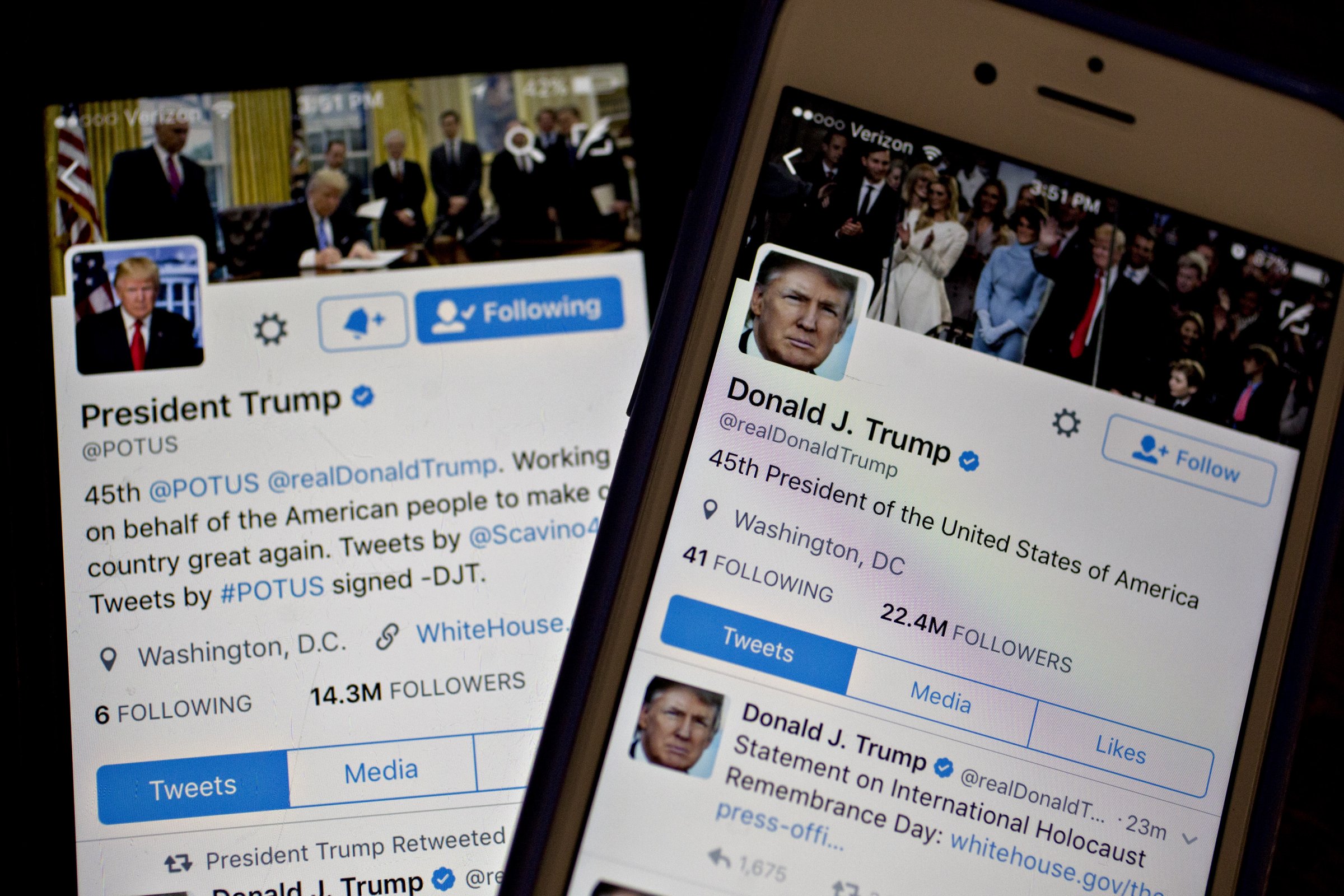
President Donald Trump suggested Thursday that his unfettered tweeting was helpful to American foreign policy.
“Social media is the way to go. I’ve got over 100 million people watching,” he told reporters while in New York, adding that social media is “a fast way of getting the word out.”
But what kind of word is getting out?
From his days tweeting as a private citizen before declaring as a Republican primary candidate in 2015 till after he was sworn in on Jan. 20, 2017, Trump has been prolifically commenting on world affairs and U.S. foreign policy in 140 characters or less.
As with his position on a host of other subjects, his stance on different aspects of foreign policy has shifted. To be sure, people’s views do change over time, but Trump the citizen held remarkably divergent beliefs from Trump the president.
In 2013, Trump called a mooted militarily intervention in Syria “a polititian’s [sic] war” and mocked the country’s situation with reference to Obamacare. But in April 2017, President Trump hurled 59 cruise missiles at the country, as a punitive move for the Assad regime’s used of suspected chemical weapons.
As President, he has repeatedly used the social media platform to demand Mexico pay for his proposed wall on the southern U.S. border. In the first week of his assuming office, Trump suggested on Twitter that a scheduled meeting from his Mexican counterpart be canceled over the country’s staunch refusal to pay for the wall — only to have Enrique Peña Nieto announce, also via Twitter, that he would not make the trip.
Meanwhile, Trump said German chancellor Angela Merkel, with whom he appeared to have opted not to shake hands during their meeting in the Oval Office, was doing a “fantastic job” in a 2013 tweet.
But in an August 2016 campaign speech, he compared cast both rival Hillary Clinton and Angela Merkel in a very unfavorable light. “Hillary Clinton wants to be America’s Angela Merkel, and you know what a disaster this massive immigration has been to Germany and the people of Germany,” he said.
Trump also had more than a few complaints about Saudi Arabia before stepping into politics full-time.
The oil-rich kingdom is now the first stop on Trump’s initial foreign trip as president — a highly significant reflection of the importance his administration places on relations with a long-standing and valued ally.
More Must-Reads from TIME
- Cybersecurity Experts Are Sounding the Alarm on DOGE
- Meet the 2025 Women of the Year
- The Harsh Truth About Disability Inclusion
- Why Do More Young Adults Have Cancer?
- Colman Domingo Leads With Radical Love
- How to Get Better at Doing Things Alone
- Michelle Zauner Stares Down the Darkness
Contact us at letters@time.com